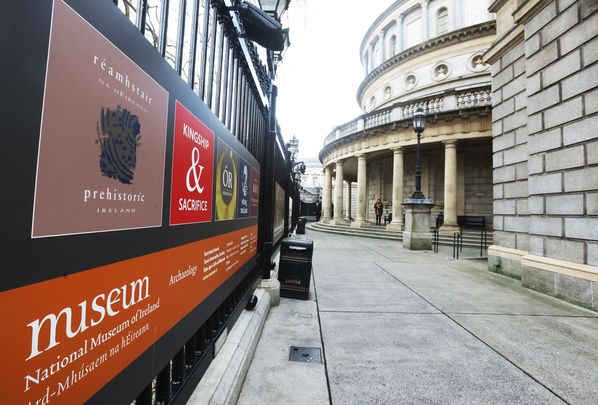Irish police have seized a number of valuable archaeological artifacts as part of a European-wide crackdown on illegal art trafficking.
Officers from An Garda Síochána's National Bureau of Crime Investigation (GNBCI) have discovered an undisclosed number of archaeological treasures that were not reported to the National Museum of Ireland.
Police agencies around Europe recovered 11,049 artifacts during raids last year as part of Europol's Operation Pandora, which was first launched in 2016.
Europol said a total of 60 people were arrested in 14 different European countries as a result of the raids.
Numerous valuable ancient artifacts were recovered during last year's raids, including 3,000 ancient coins, 77 ancient books that were stolen from a monastery, and the marble bust of Salonia Matidia, the niece of Roman Emperor Trajan, who ruled between 98-117 AD.
Portuguese authorities also recovered 48 religious sculptures in addition to other religious artifacts.
A Garda spokesperson said a number of investigations are ongoing in Ireland following last year's raids.
"Members of An Garda Síochána attached to the Garda National Bureau of Criminal Investigation (GNBCI) Arts & Antiquities Unit participated in this operation as part of a Cyber Patrol, led by the Dutch National Police (Politie), targeting the illicit trafficking of cultural goods on online markets," the Garda spokesperson said in a statement.
"During 2022 a number of archaeological objects which were not reported to the National Museum of Ireland were identified and are now subject to ongoing investigations under the National Monuments Act 1930 and others.
"GNBCI, with the cooperation of the National Museum of Ireland, routinely conducts similar cyber patrols."
Europol has confirmed that around 130 investigations remain ongoing following last year's raids, adding that it expects more arrests to follow.




Comments